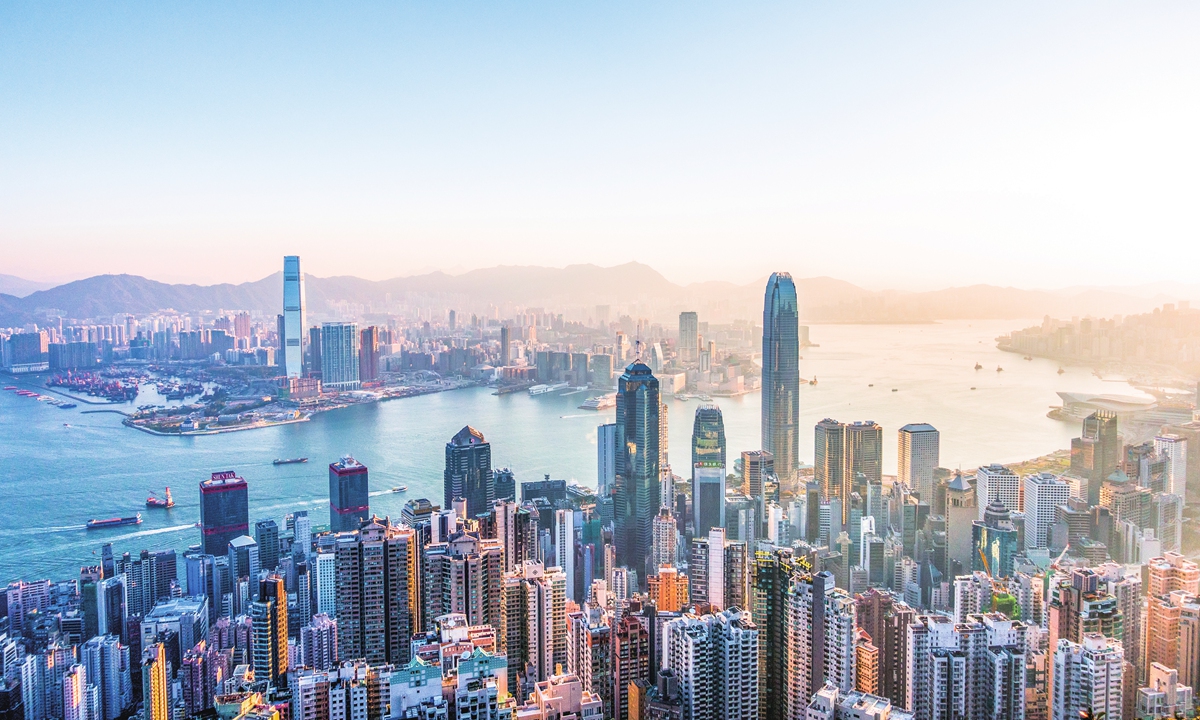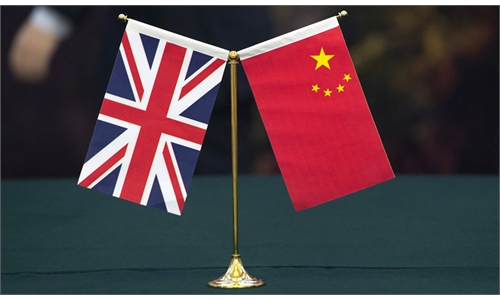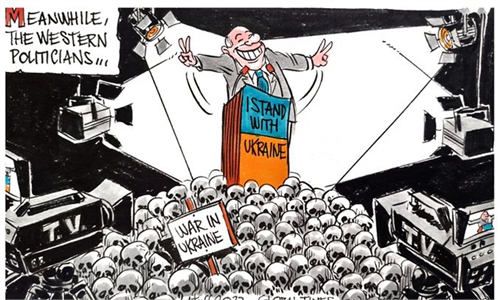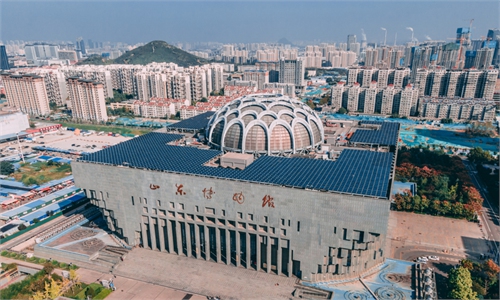UK investment minister's visit to HK 'positive sign' for China ties, but it must let go of interference

A snapshot of Hong Kong Photo: VCG
A visit by UK's Minister of State in the Department for Business and Trade Dominic Johnson to Hong Kong Special Administrative Region (HKSAR), the first official visit by a senior British official to the city in five years, is welcomed by observers as a signal that shows London's eagerness to engage deeper with China on economic cooperation after the fallout of Brexit.
However, experts also called on the UK to let go of its interference in Hong Kong, as flirting with China's core interest will likely thwart potential cooperation.
Photos on Johnson's Twitter account published on Monday showed him meeting with Christopher Hui, Hong Kong's secretary for financial services and the treasury "to discuss our ongoing work to remove market barriers and increase UK-Hong Kong trade."
He also met with CK Hutchison Chairman Victor Li and co-managing director Canning Fok to discuss the company's investment plans in Britain.
In an opinion piece published in Hong Kong-based South China Morning Post on Tuesday, Johnson wrote that the "UK will continue to engage robustly and constructively" with China where their interests converge.
John Lee, chief executive of the HKSAR, said on Tuesday that Hong Kong welcomes officials from any country to visit the city.
Johnson's visit reflects the UK government's high recognition of China's vast market and bright economic prospects, Lü Xiang, director for research at the Chinese Institute of Hong Kong, told the Global Times. The expert said that UK investment minister's opinion piece laid bare the country's hunger for foreign investment and its hope that Hong Kong will be an important source of investment.
Ties between China and the UK soured after the UK consistently interfered and smeared China's policies in Hong Kong. No high-level British official had visited China since Prime Minister Rishi Sunak took office last October.
Brian Davidson, British consul general to Hong Kong and Macao SARs, said earlier this month that London hopes to see a new chapter in ties with the city, especially on trade and investment, and for difficult issues to be subjected more to honest behind-the-scenes discussions with less megaphone diplomacy.
His remarks echoed those of Britain's Foreign Minister James Cleverly, who said last month that Britain should not "pull the shutters down" on China, as it would be counterproductive to national interest.
After the relationship spiraled down for a few years, the UK began to realize that decoupling from China is counterproductive for its national interest, and wants to re-engage with Beijing after seeing the trend of "relationship renewals" between China and European countries, said Cui Hongjian, director of the Department of European Studies at the China Institute of International Studies, referring to frequent engagements between Chinese and European officials recently.
Apart from discussions of economic and investment cooperation, Johnson claimed that the UK "will also stand up for our values and be clear about our right to act when Beijing breaks its international commitments or abuses human rights."
Lü said that as Hong Kong is playing a bridge for China and the UK to re-engage, the city is also key to assuaging tensions between the two countries, as long as London stops pointing a finger at Hong Kong's affairs.
"Moreover, the UK government should retract its previous wrongdoings on Hong Kong, such as the BNO passport scheme."
Asked whether the scheme would be extended beyond 2025, Britain's next general election, when it is due to be reviewed according to the British Home Office, Davidson said last week that attempting an answer would be "crystal ball gazing," and he admitted that he cannot make any pledges that extend beyond the coming poll.
Another factor that is swaying the UK's policy on China, according to Lü, is the US, which is sparing no effort in marshalling its allies to go up against China, and it is luring those allies to decouple from China economically.
Lü noted that Johnson's opinion piece in the Hong Kong media, which discussed boosting economic cooperation with China, is a "signal that the UK has already deviated from the US hopes on decoupling from China.



